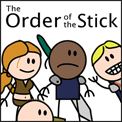Torture-as-Usual
New York Times op-ed contributor Slavoj Zizek wrote a piece on the methods used to extract confessions from Khalid Sheikh Mohammed. As I am sure you know, this man has admitted to planning a laundry list of terrorist acts including (this list taken from FOX News' "Fast Facts" on the story):
- The 9/11 attacks
- The "Shoe bomber" operation to bring down two American airplanes.
- An assassination attempt against President Clinton during his 1994 visit to the Philippines
- An assassination attempt againt Pope John Paul II (also in the Philippines)
- An assassination attempt against former President Jimmy Carter
- The bombing of a nightclub in Bali, Indonesia in 2002
- The destruction of U.S. embassies in Indonesia, Australia and Japan
- The bombing of hotel in Mombassa, Kenya that is frequented by Jewish travelers
Let me pause so you can reflect on this a moment: the American government is admitting that it is torturing people for information in the name of national security. Of course he admitted to planning every major terrorist attack in the past ten years. He would have admitted to being the Gingerbread Man if you had asked.
But, based on the lack of popular outcry, the American people seem to be okay with that, because somehow, American society at large now accepts the idea that torture is an acceptable way of treating prisoners. Zizek writes
Yes, most of us can imagine a singular situation in which we might resort to torture – to save a loved one from immediate, unspeakable harm perhaps. I can. In such a case, however, it is crucial that I do not elevate this desperate choice into a universal principle. In the unavoidable brutal urgency of the moment, I should simply do it. But it cannot become an acceptable standard; I must retain the proper sense of the horror of what I did. And when torture becomes just another in the list of counterterrorism techniques, all sense of horror is lost.This is the most horrifying aspect of the whole affair: not just that people are being tortured, but that people are okay with the idea of torture as an "interrogation technique".
—The New York Times, "Knight of the Living Dead"
Zizek goes on to compare the situation to Fox's show "24," saying that "Reality has now surpassed TV. What '24' still had the decency to present as Jack Bauer's disturbing and desperate choice is now rendered business as usual." Here, I think Zizek is missing the larger point: what happens on "24" and what happened at Gitmo are both the direct result of a corrupt leadership that is undermining the rule of law in favor of what can only be described as medieval standards for justice. As I wrote a few weeks ago, "24" has effectively desensitized the American people to the idea of torture. On "24" torture is business as usual, and is helping a very unpopular administration to get away with doing some very nasty things.
On the TV show, you can understand why Jack might resort to torture: he's always running out of time, knows who has the information he needs, and he's sure that if he does the distasteful act that he will be able to save thousands, maybe millions of lives. But the real world doesn't work that way: there is no ticking time bomb in this case, and there is no indication that these admissions will save any lives at all. This isn't an informant with a vital piece of information to avert an imminent terrorist attack. This isn't even Osama Bin Laden. This is some terrorist who is going to say anything you want him to say because you're dunking him like a witch at Salem. And ultimately, we are all going to suffer for it, because it is not only destroying our credibility, it is undermining the moral fabric of our nation.
With the help of a gagged media, the American people have chosen to look the other way as literally a thousand years of progress are being turned back. For what? A scapegoat named Khalid Sheikh Mohammed?... in the end, the greatest victims of torture-as-usual are the rest of us, the informed public. A precious part of our collective identity has been irretrievably lost. We are in the middle of a process of moral corruption: those in power are literally trying to break a part of our ethical backbone, to dampen and undo what is arguably our civilization’s greatest achievement, the growth of our spontaneous moral sensitivity.
—ibid.

 RSS
RSS

